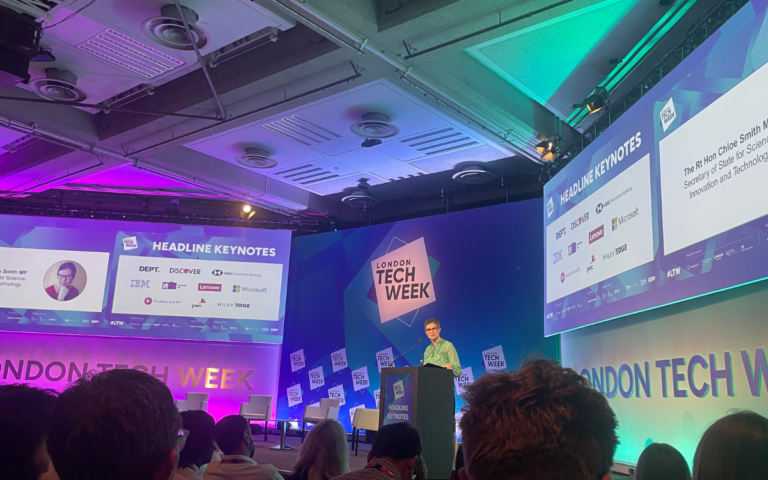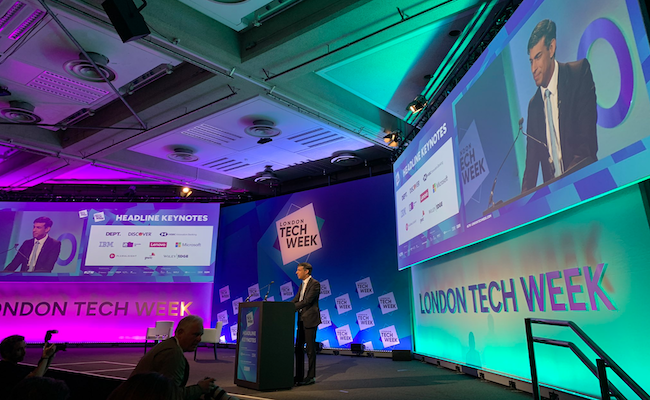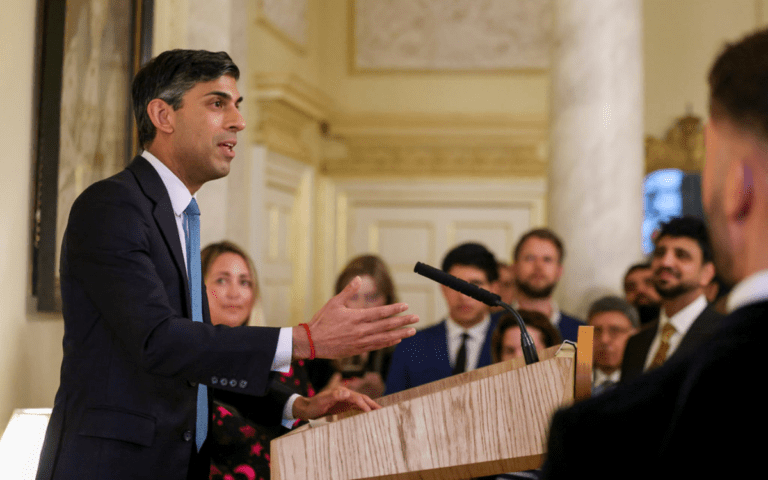Chloe Smith, Secretary of State for Science, Innovation and Technology, opened yesterday’s London Tech Week, highlighting the Government’s plans to “keep the UK at the forefront of this new digital frontier.”
During her speech, Smith spoke of the successes of the UK tech industry, not just during London Tech Week but over recent years.
She said, “…this London Tech Week, now in its tenth year, has sent the strongest of signals – that when it comes to tech, the UK is fully open for business.”
“I’ve certainly seen that first-hand in the events I’ve been part of this week.”
“Whether it’s the relaunch of Silicon Valley Bank UK as HSBC Innovation Banking and the multi-million-pound investment it’s feeding into our home-grown Fintech, Life Sciences and Consumer businesses so they can scale up and grow.”
“Or in our announcement of a new MoU between Australia and the UK on diversifying telecoms. An agreement that will boost the roll out of more 5G networks and safe, secure, superfast broadband to communities even in the most far-flung of communities.”
“This week saw the announcement of our Smart Infrastructure Pilots Programme, helping councils in different parts of the country test new smart lamp posts that extend mobile coverage and increase connectivity for more homes and businesses than ever before.”
“Everyone here knows that in recent years, the UK has become one of the most competitive countries in the world for tech.”
“We have the largest tech sector in Europe and the third largest in the world behind the US and China.”
“Last year, we became just the third country to date with a tech sector valued at $1trillion.”
“And it’s fair to say that when it comes to AI, Fintech and Bio-tech, the UK is consistently punching well above its weight.”
Smith also announced the Government’s new Geospatial Strategy to ensure that the UK stays’ ahead of the curve in revolutionising location data and technologies up to 2030.
The UK Geospatial Strategy 2030 will unlock billions of pounds of economic benefits through harnessing technologies, such as AI, satellite imaging and real-time data to boost location-powered innovation and drive the use of location data in property, transport, utilities and beyond.
Speaking about the scheme, Smith said, “The strategy includes three missions.”
“The first is to embrace enabling technologies to accelerate geospatial innovation.”
“Using anonymised population movement data and satellite imagery to help us design new homes, integrated transport systems, and improve the sustainability of cities so they better meet the needs of residents.”
“It could also help our emergency services improve response times with more accurate understanding of where assistance is needed in real-time.”
“The second mission is to drive greater use of geospatial applications and insights across the economy. Using location data, for example, to build a digital map of underground infrastructure so we can reduce disruption when pipes or cables need fixing, or to understand where we need to install more superfast charging points for long journeys with electric vehicles.”
“The third mission is to build confidence in the future geospatial ecosystem – increasing the UK’s international standing through bringing together countries from around the world to share knowledge and insights so that we move geospatial technology forwards together.”
Concluding her speech, Smith highlighted the future of the UK tech industry, with the government working ‘“hand in hand” with partners in industry, academia and global forums to “keep the UK at the forefront of this new digital frontier.”
She said, “The UK is already the greatest tech and science success story of this decade.”
“Together let’s make it a true tech and science superpower in the next decade and beyond.”







